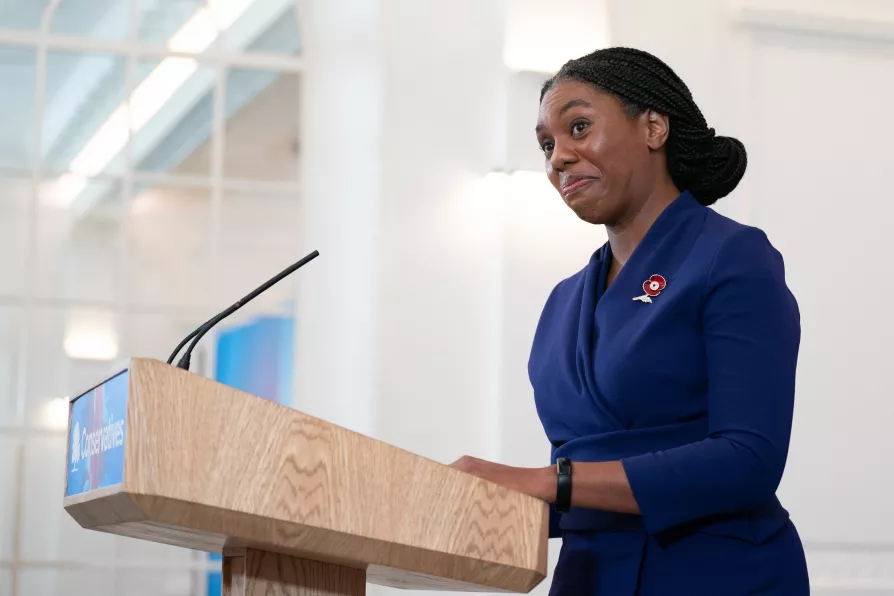Badenoch casts hard-right shadow over politics
by Andrew Murray
Political reporter

 New Tory leader Kemi Badenoch
New Tory leader Kemi Badenoch
HARD-RIGHT shadows lengthened over British politics with the election of culture warrior Kemi Badenoch as Tory leader at the weekend.
Ms Badenoch beat rival Robert Jenrick by 53,806 votes to 41,388 from the shrivelled Conservative membership, less than 73 per cent of whom bothered to vote.
The former business secretary becomes the first black woman to lead a major political party in Britain, a fact she does not make much of.
Similar stories

“At local level, it’s different."













